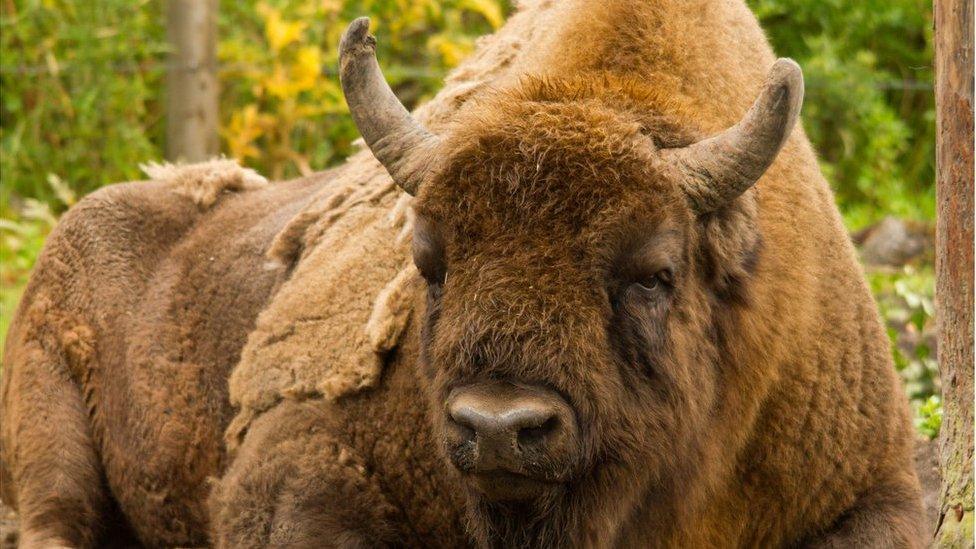Two bison calves born in wilding project
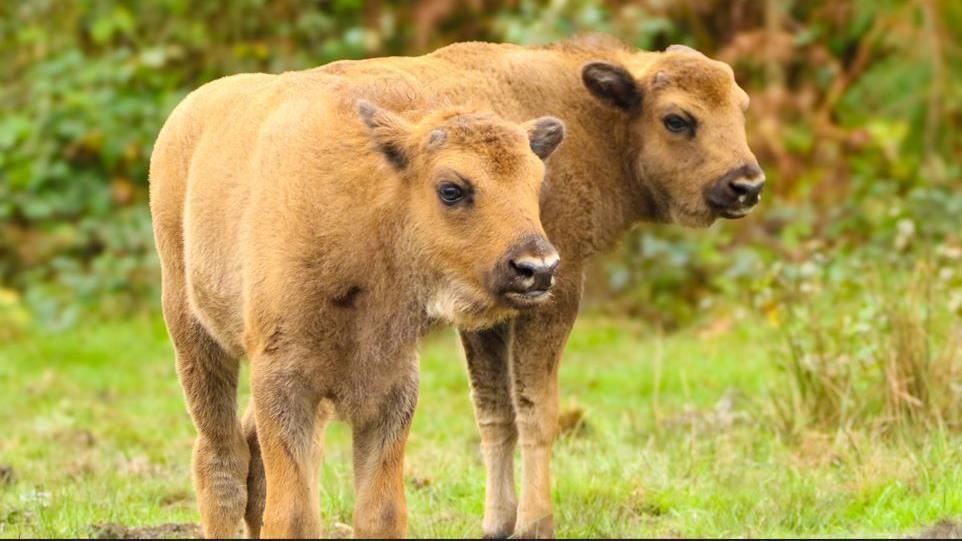
The two calves were born as part of the wilding project in Blean Woods
- Published
Two bison calves have been born in an east Kent woodland as part of a groundbreaking wilding project.
The young females take the number in the herd near Canterbury to eight.
The herd forms part of a project to boost the diversity of Blean Woods and help make the landscape more resilient to climate change.
Hannah Mackins, bison ranger for Kent Wildlife Trust, said she was "absolutely delighted" by the arrival of the calves who are "doing really well, suckling from mum and growing quickly by the day".
The herd now consists of four adults who were chosen from other projects and four calves that were born in the woodland.
The bison project is run jointly by Kent Wildlife Trust and the Wildwood Trust.
Paul Whitfield, director general of Wildwood Trust, said: "It’s always been part of this project to allow the herd to grow naturally over time through breeding.
"These births show that the animals are showing naturally healthy behaviours and are thriving in the woodlands that they are regenerating."
Since the release of the animals into Blean Woods in summer 2022, the bison have roamed in nearly 125 acres.
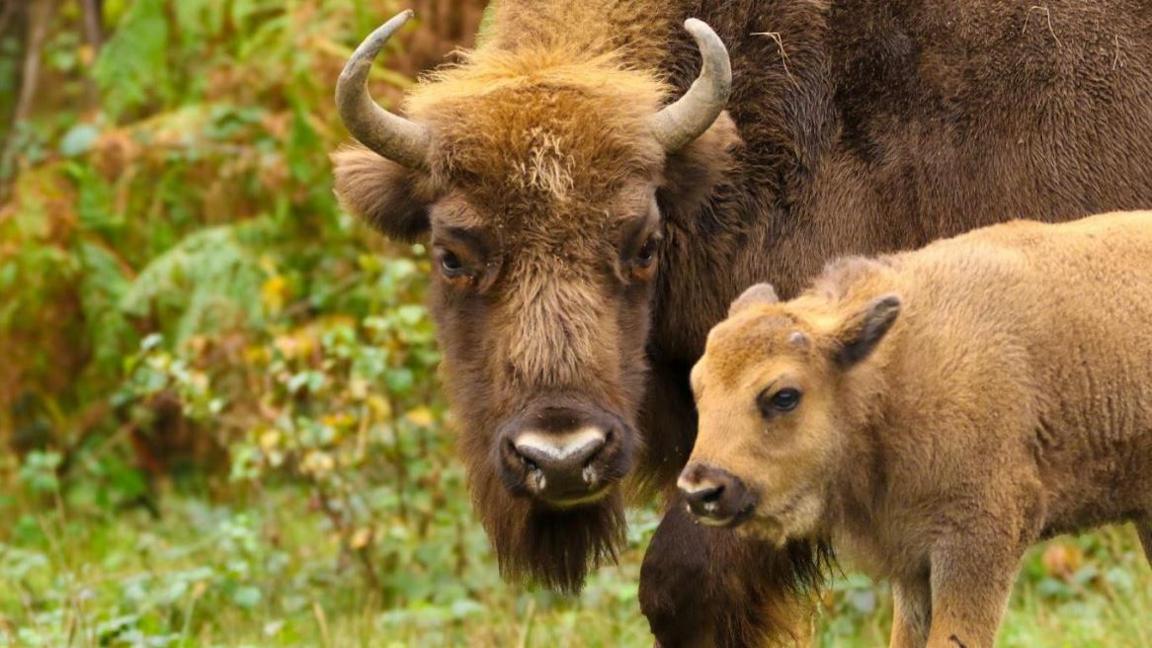
The herd now consists of four adults and four calves
That space is due to expand up to nearly 300 acres in the near future with the building of bison bridges to keep humans and the animals apart.
Scientists who have been analysing dung from the bison since their arrival say they’ve seen improvement in the diversity of microbes.
Dr Anastasios Tsaousis, from the University of Kent, said: "A lot of good microbes are actually expanding their population within their gut, and this means the animals are much healthier.
"This will benefit the woodland because all this dung is actually spreading about so you enhance the soil and this will bring much more diversity of microbes across the area, and this helps the growing of species from plants to animals."
Follow BBC Kent on Facebook, external, on X, external, and on Instagram, external. Send your story ideas to southeasttoday@bbc.co.uk, external or WhatsApp us on 08081 002250.
Related topics
- Published18 July 2022
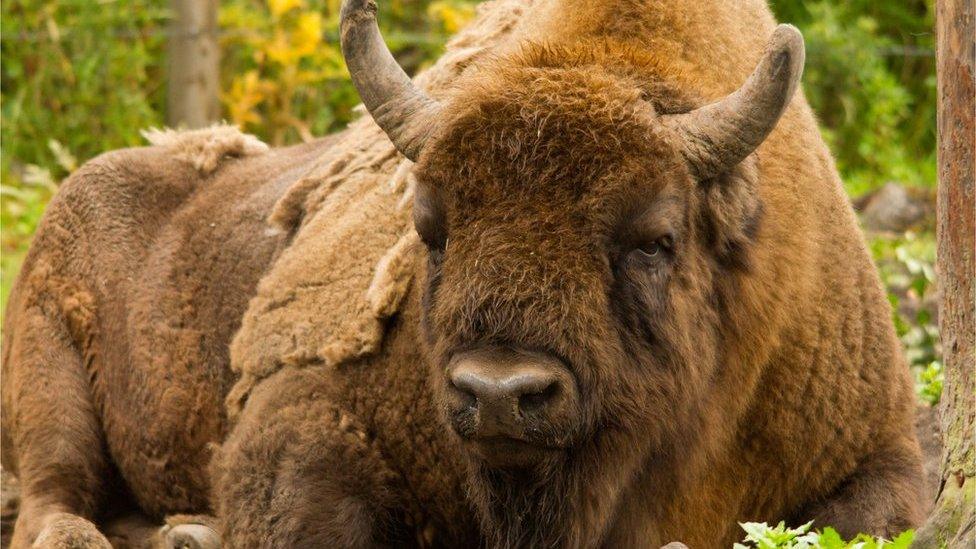
- Published18 July 2024
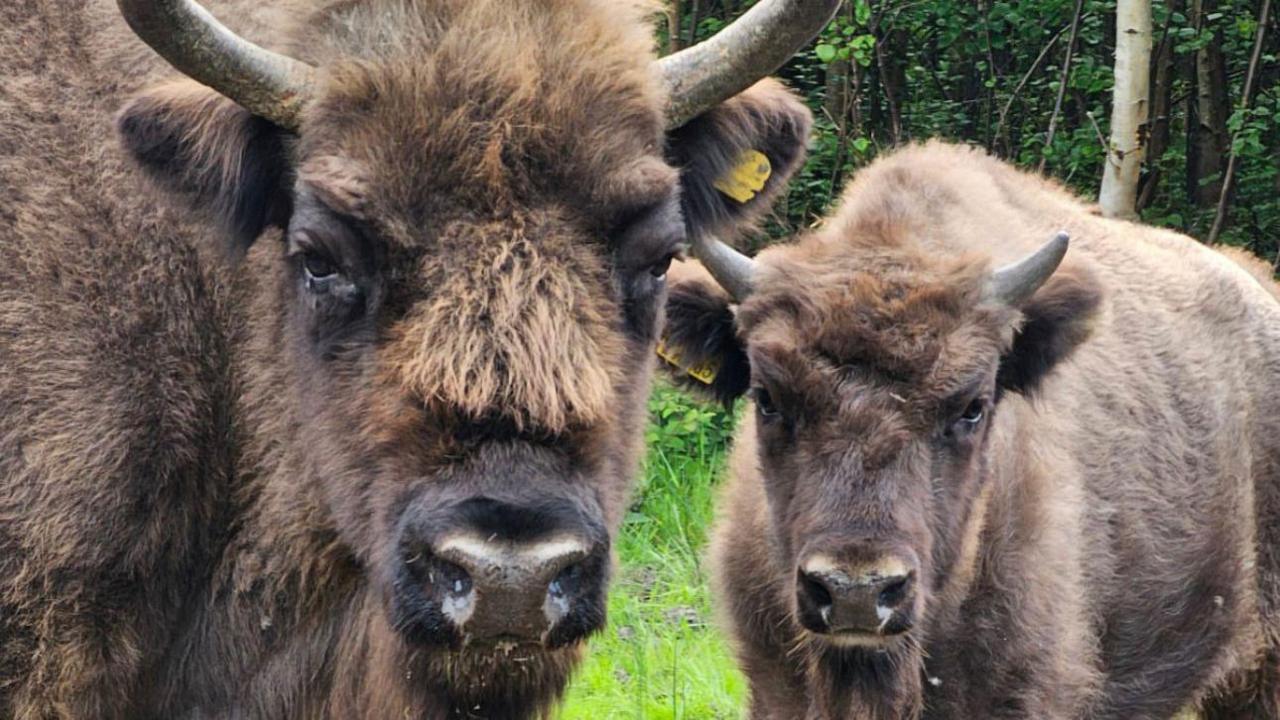
- Published29 July 2021
